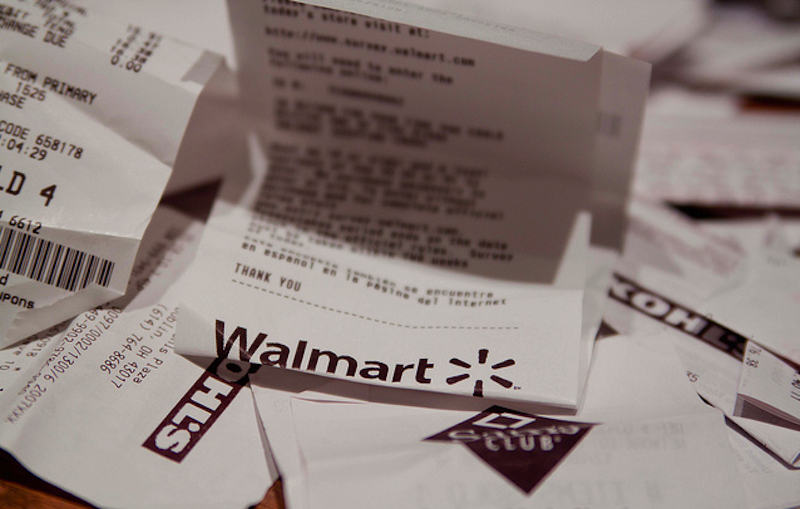“Cash or credit” was, at one time, the question that defined the universal customer/cashier relationship; it gave both parties of a sense of where this thing was heading, how serious it was destined to be, and usually wasn’t especially difficult to answer unless, on the customer side of the equation, one remained padlocked to one’s checkbook. In recent years, this question has been supplanted by “Would you like a receipt?”
Whether or not the question is stupid depends equally on context and mode of payment: you’d want a receipt on a big-ticket item, like an appliance or a car, regardless of how you pay, but in cases where you’re putting down cash for some perishable treat or meal you wouldn’t, unless maybe it was for business and you could claim it as a business expense, get reimbursed.
I’m more interested in this question—“Would you like a receipt?”—as it relates to everyday credit-card expenditures, like when you’re paying upfront at Cici’s or checking out at Wal-Mart or something. You know, a defiantly and identifiably middle-class consumer experience, the kind of experience when you wince as the tally is rung up, and an itsy-bitsy spat flares up in the aisle there, and you could cut the tension with a knife while signing the little line on the screen, it’s apparent to everyone nearby that funds are tight. Because in cases like those? In cases like those, asking whether or not someone would like a receipt seems like a fool’s errand, a waste of breath.
Electronic checking? Receipts are used to verify electronic checking, a failsafe to prove that you really did spend $40 on gas instead a neighbor who broke into your house and borrowed your card while you were at work. (Verifying this means more to me, frankly, than pretending that I care much about the environment.) Fact: the only people who don’t need credit-card receipts are either wall-street banker rich or commoners who get some sort of warped, sinking-feeling kick out of never quite being able to balance their checkbooks.

